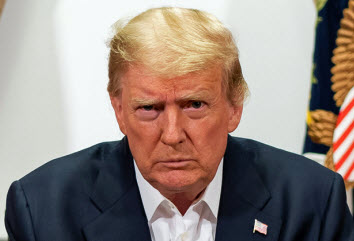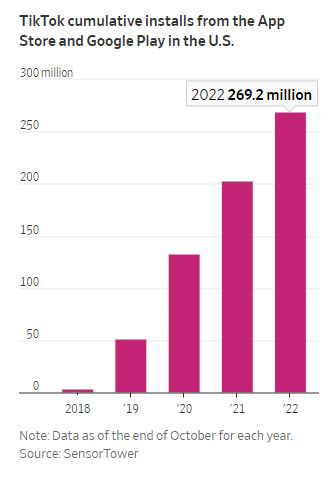With a Special Counsel, Garland Helps Trump Run Out the Clock
The moment “the pause” was over — the 60-days before an election during which the Justice Department refrains from actions that might affect votes — Donald Trump announced a run for a second term. The Justice Department has a rule not to indict a sitting president. Trump’s maneuver, the earliest presidential candidate announcement ever, was clearly in the hope that this policy might carry over to shield a candidate, too.
He was right. A widely expected indictment, at least for the documents he took to Mar-a-Lago, did not come. Instead, Attorney General 
Merrick Garland punted, some would say, announcing the appointment of Jack Smith as special counsel to handle the two cases, the stolen documents and Trump’s alleged interference with the government process of transferring power to the newly elected president. Smith, remote from American politics, is currently prosecuting war criminals in den Haag, but has already plunged in, apparently.
Garland’s stated reason for the Smith assignment is that for “particularly sensitive matters…in certain extraordinary cases, it is in the public interest to appoint a special prosecutor”. Biden suggesting that he will announce his candidacy soon after the turn of the year presents a conflict for Garland. Appointed by Biden, the AG is in the awkward position of criminally prosecuting Biden’s rival. A special counsel removes Garland from the day-to-day workings and decisions of the investigations, although ultimately it will be he who must decide what to do with the special counsel’s recommendations.
The instantaneous reaction was that Trump has won again, rewarded by the DOJ for announcing this soon to avoid indictment. The master of running out the clock, Trump had sued in a Florida district to block Justice’s review of the documents taken from Mar-a-Lago where a Trump appointed judge ruled in his favor, then lobbied for a special master to slow the process, to which Justice acquiesced, and now in this open-and-shut case — Trump took documents in violation of the Presidential Records Act, period — he’s getting a special counsel. Instead of an indictment any day now, it’s who knows when?
Nothing, of course, will placate the Trump apologists. Garland’s Justice has granted Trump indefensible deference for a criminal act for which any one of us would have seen prison eighteen months ago, yet that has not occurred to Fox hosts such as Laura Ingraham who asks, “Does anyone actually believe that this is all in the ‘public interest’?”, or Georgia Representative Marjorie Taylor Greene who says, “It’s nothing but the Democrat Party’s campaign against President Trump”, or Ohio Representative Jim Jordan who thinks, “If that’s not a political Justice Department, I don’t know what is”, and who is already planning to investigate Smith.
Think positive?
Commentators on the left were thrilled, as if the Trump investigations have suddenly gotten serious whereas heretofore they weren’t. Unlike Mueller’s almost two year investigation, unlike John Durham’s ongoing three year probe that has gone nowhere, this will be different, is their take. Jack Smith will wrap this up expeditiously. There will be none of the mission creep of Independent Counsel Kenneth Starr’s more than four years of trying to take down Bill Clinton that started with an Arkansas real estate deal and led, when that uncovered nothing, to finally discovering Monica Lewinsky’s blue dress.
MSNBC’s Lawrence O’Donnell made a good case for optimism. Holding up an organization chart of the Department of Justice, he said:
The person currently supervising both of those investigations and possibly prosecutions is Merrick Garland, who is also in charge of supervising the 115,000 people who work at the DOJ including the 35,000 people working at the Federal Bureau of Investigation, the 34,000 working at the Bureau of Prisons, the 9,848 people working in the Drug Enforcement Administration, the 5,400 people working in the US Marshall Service, and on and on and on. Merrick Garland has Justice Department employees answering to him all over the world and now Jack Smith has been appointed by the attorney general to spend all day every day concentrating on one thing: the investigation and possibly prosecution of Donald Trump. Jack Smith can make the decisions that previously had to get in line for the attorney general’s attention — [behind] a civil rights division, an anti-trust division, a tax division, an environment and natural resources division — and Jack Smith doesn’t.
Nevertheless, however swiftly Smith moves, it will take extra time, and as we drift into the next stage of America’s perpetual election, any move by Justice will seem that much more political and may give Garland still more pause. Trump may slither through yet again.
It’s not morning in America
Trump’s announcement speech at Mar-a-Lago ran over an hour. For a written speech — evident from him alternately looking left and right — it was strangely disjoint with subjects in no discernible order. You wouldn’t know it from Fox News, which carried the speech, of course. Sean Hannity broke in after about forty minutes for fellow-anchor Pete Hegseth to say, ” This looks like Trump in as good a form as you’ve ever seen him” and former Arkansas Governor Mike Huckabee to gush, “This was an absolutely brilliant speech”. Then, why the interruption? “If he keeps on like this tonight, he is unbeatable in 2024”, Huckabee continued.
Commentators on the left had the opposite view. They thought Trump was “listless” and “low energy”, turning a phrase back on Trump that he had used to describe Candidate Jeb Bush in 2016. Historian Michael Beschloss wondered,”Why does he look and sound so morose?” He had “heard funeral orations more cheerful and energetic than that speech.”
People had tried to leave but were blocked by security. That squared with an account by Jennifer Palmieri, former communications director under Obama, now co-host of Showtime’s political program, “The Circus”, who attended a rally that Trump staged the night before Election Day in Dayton, Ohio. She calleed Trump’s deflated performance “late stage Elvis”:
“There was a huge crowd, not to diminish that, maybe 7,000, 10,000 people…They wanted to hear him do the greatest hits. [Instead], It was two solid hours of grievance. It was just all the things that he was treated badly about, people who had dissed him, Letitia James and the FBI raiding Mar-a-Lago. They showed a very well-produced video about evil Letitia James and the FBI raid but the crowd did not react at all. When he started speaking, the crowd sat down!. The crowd started to leave. It was nothing about them, and they used to feel like a kinship between Trump and the people, who believed he was fighting for them, and it was just like air out of the balloon. They tried to get a little build the wall chant going. They couldn’t get anything going”.
In his announcement speech, Trump claimed that the U.S. had gone from “We built the greatest economy in the history of the world” under his administration to “Now we are a nation in decline, we are a failing nation” under President Biden. Saying, “Under Biden and the radical Democrats, America has been mocked, derided and brought to its knees, perhaps like never before” had to bring even that low information audience to wonder if he was creating his own reality.
“Our country is in a horrible state. We are in grave trouble”. The man who created the Big Lie to sow distrust in the voting process on which our democracy relies actually said, “Our country is being destroyed before your very eyes”, as if by someone else.
Worse is yet to come, he says: “The citizens of our country have not yet realized the full extent and gravity of the pain our nation is going through”. Crime has been on the increase, true, but “The blood-soaked streets of our once-great cities are cesspools of violent crimes”? Wherever crime is blood-soaked, that owes to the Second Amendment gun zealotry of his own Republican Party.
His narcissism was rampant. ” What we have built together over the past six years is the greatest movement in history”. His “I alone can fix it” boast was revived with, “I am running because I believe the world has not yet seen the true glory of what this nation can be”. We learned that Ukraine would never have happened had he still been president”, that he “rebuilt the entire military”, that he “used to make deals for our country like you would never believe”. His successes so united the country that…
“The people were calling me, you wouldn’t believe it, people that were so far left, I figured they would never speak to me”.
No, people weren’t calling him nor did “People say, how do you speak before so many people”. The man who slanders everyone to psychologically elevate himself said, “We don’t want to be critics or complainers. I never wanted to be a critic. I never respected critics”. The New York Times compiled the complete list of Trump’s insults on Twitter from the day he announced in 2015 to when he was banned from the service. It’s astounding in length.
Observing him as a candidate in 2016, a number of psychologists diagnosed him as a malignant narcissist, “dangerous” and “untreatable”. We wrote of that five years ago. It’s been apparent all these years, a narcissism beyond what we thought possible. What is remarkable is how America got so accustomed to his illness that the media now pays little attention to his self-delusion, mentioning almost none of what we quote here, and there is still more, which we think should not be overlooked, and spoken in the context of once again vying to be no less than the president of the United States.





